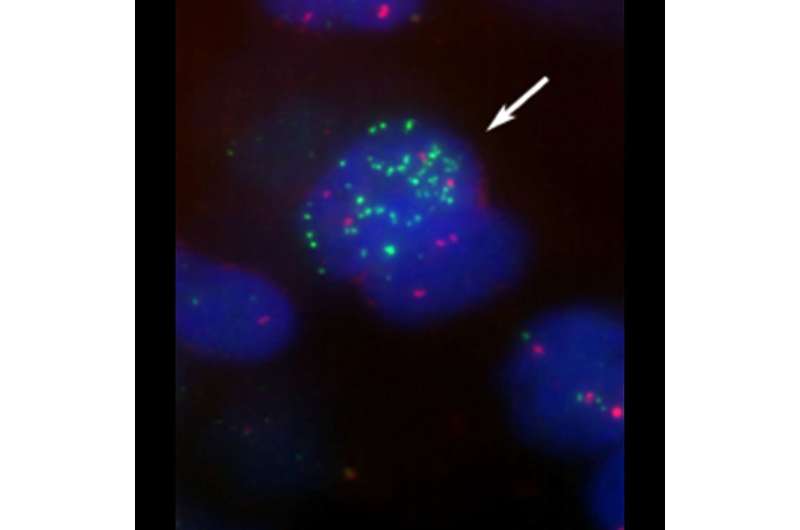This article has been reviewed according to Science X's editorial process and policies. Editors have highlighted the following attributes while ensuring the content's credibility:
fact-checked
peer-reviewed publication
proofread
Childhood cancer: 'New' immune system responds better to therapy

Scientists at St. Anna Children's Cancer Research Institute and the Eberhard Karls University of Tübingen have shown that immunotherapy after stem cell transplantation effectively combats certain nerve tumors in children. Crucially, stem cells from a parent provide children with a new immune system that responds much better to immunotherapies. These results of an early clinical trial were published in the prestigious Journal of Clinical Oncology.
Childhood tumors of the nervous system, known as neuroblastomas, are associated with an unfavorable prognosis if the tumor is classified as a high-risk type. The chances are particularly poor for patients in the relapsed stage. In this case, immunotherapy following stem cell transplantation is now associated with long-term survival in a substantial proportion of the patients included in a recent study. Compared to an earlier study the survival rate was increased.
"After the transplantation of stem cells from a parent, the patients are equipped with a new immune system. This enables a better immune response to the subsequent immunotherapy and clearly improves the outcome," explains Prof. Ruth Ladenstein, MD, head of the Studies & Statistics group for Integrated Research and Projects (S2IRP) at St. Anna Children's Cancer Research Institute and professor at the Department of Pediatrics and Adolescent Medicine at MedUni Vienna, who played a key role as co-first author.
Long-term survival exceeds 50 percent
"After a median follow-up of about eight years, we see that more than half of the study patients live five years or longer with their disease," Prof. Ladenstein reports (5-year overall survival: 53%). In comparison, the 5-year overall survival in an earlier study, in which stem cell transplantation was not followed by immunotherapy, was only 23 percent. Those patients who showed a complete or partial response to prior treatment had significantly better survival.
"In summary, immunotherapy with dinutuximab beta following transplantation of stem cells from matched family donors resulted in remarkable outcomes when patients had at least a partial response to prior treatment," says Prof. Ladenstein. "In our study, there were no unexpected side effects and the frequency of graft-versus-host-disease was low."
Boosting natural killer cells
Dinutuximab beta is an antibody that binds to a specific molecule (GD2) on the surface of tumor cells, marking them for destruction by the immune system. Subsequently, specific immune cells, known as natural killer cells, can attack the tumor. However, prior chemotherapies may impair certain abilities of natural killer cells.
"Therefore, a transplantation of intact natural killer cells from matched family donors seems reasonable before immunotherapy is administered. The transplanted, new natural killer cells are now able to target the tumor cells more efficiently—by means of an antibody-dependent reaction," explains Prof. Ladenstein.
According to the authors, further studies are needed to determine the individual components of the therapeutic approaches. Recently, conventional chemotherapy has also been combined with immunotherapy early in the treatment strategy, resulting in similarly improved response rates.
However, the hope is that the concept of a renewed immune system through a healthy parent in combination with the described transplantation procedure could further increase survival rates: "Our approach could thus result in stronger and longer lasting tumor control. A randomized study would be necessary to scientifically substantiate the additional potential benefit of a new immune system in the context of relapse therapy," Prof. Ladenstein adds.
More information: Tim Flaadt et al, Anti-GD2 Antibody Dinutuximab Beta and Low-Dose Interleukin 2 After Haploidentical Stem-Cell Transplantation in Patients With Relapsed Neuroblastoma: A Multicenter, Phase I/II Trial, Journal of Clinical Oncology (2023). DOI: 10.1200/JCO.22.01630




















